The benefits of single-gender education
One of the most important decisions a parent will make is choosing a school for their child. After all, their son or daughter will spend up to 15 years at school - learning, making friends, being inspired, discovering their interests, developing into an adult and, hopefully, having fun.
There are many factors to consider when choosing a school: location, values, cost, private or public, selective or non-selective, mixed or single-gender; the list goes on. But it is this last aspect that is perhaps one of the most difficult choices for parents to navigate.
So, what are the factors to consider when deciding whether or not to send your child to a single-gender school? It is important to note that all children are different – at CBC Fremantle we appreciate and embrace their diversity – but in the following discussion we are necessarily speaking in generalities. If CBC students require extra support in their learning and socialisation, we have effective programs in place to assist them to achieve their personal best.
Tailored teaching techniques
 The perennial debate about single-gender versus co-educational schools is fiercely contested. The jury is out on whether a gender-segregated or co-educational environment leads to higher academic results, but there is no denying that boys and girls are inherently different and, most importantly, learn differently.
The perennial debate about single-gender versus co-educational schools is fiercely contested. The jury is out on whether a gender-segregated or co-educational environment leads to higher academic results, but there is no denying that boys and girls are inherently different and, most importantly, learn differently.
In her paper The Difference Between Girls and Boys in Learning, Amany Nasser says that: "Gender differences impact the way our students learn. Girls are stronger in the verbal-emotive area, whereas boys are more inclined towards kinesthetic and visual-spatial activities. As educators we need to be aware of these differences in order to be able to make our students' learning successful."
Around the globe, the statistics support Nasser's statement, showing that girls thrive in their learning by using more verbal functions, as they do when reading or writing. On the other hand, boys learn when they are doing things, through action and practical tasks and require more learning space than girls.
In 1996 the Gurian Institute coined the phrase 'nature-based approach' to highlight the importance of basing education strategies on biological understandings of human learning. The organisation's research confirmed that boys' and girls' brains were trying to learn similar lessons in widely different ways, and with varying success, depending on the teaching method used.
With the aim of promoting better learning patterns that would decrease the gender achievement gap, further research and training resulted in a pilot program that showed significant improvement when teaching strategies were gender-specific.
But even without the supporting research, educators intrinsically understand that boys and girls learn differently, however subtle the distinction may be. Structuring learning sessions and tailoring pedagogy to meet the specific needs of that gender can maximise classroom interest and inspire engagement for your child.
Confidence is developed
During adolescence boys and girls can feel self-conscious, inhibiting their behaviour and development. While they may be trying to appear cool, underneath is a mass of hormonal activity and confusion as they learn more about themselves and their place in the world. Under scrutiny of the opposite sex, some students may be inclined to avoid participating for fear of embarrassment or ridicule. While it is true that some students may also feel this way with their same-sex peers, the feeling is amplified in a co-educational environment. Without that pressure, students report that they can express themselves more freely, try new things and develop confidence and self-esteem.
Less gender stereotyping
In a nurturing single-gender classroom the child is free to explore different areas of interest without being held back by gender custom. For example, research shows that boys who attend single-gender schools are more likely to choose life sciences leading to careers in healthcare, than their peers in co-educational institutions. Similarly, girls in single-gender schools don't face the same challenges when studying male-dominated subjects than they would in a class with boys, such as being teased, patronised or not taken seriously.
Gender stereotyping also extends to aspects like emotions, with pressure often placed on boys to refrain from displaying their feelings and girls frequently considered overly demonstrative and sensitive.
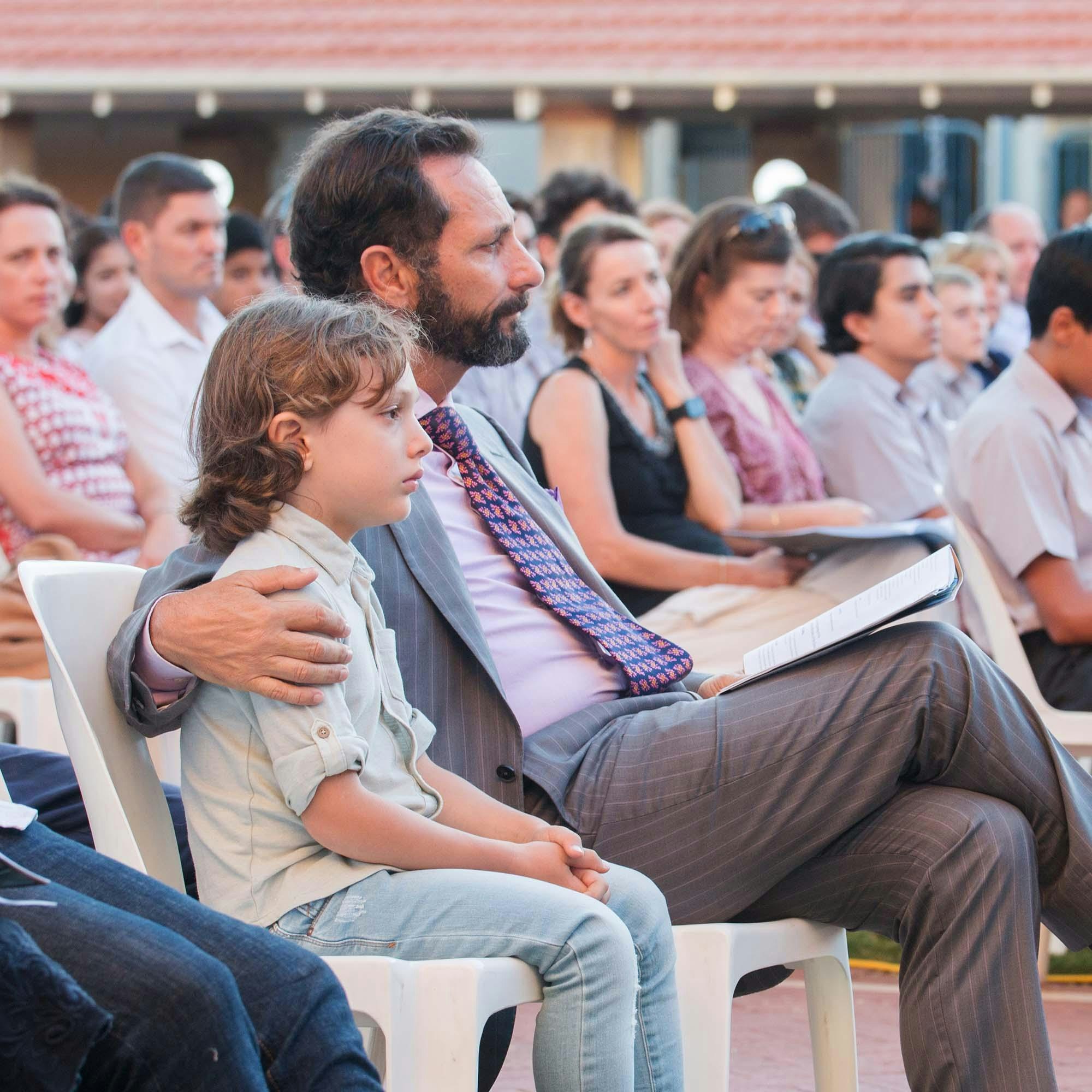
CBC Principal, Mr Domenic Burgio, with hindsight from almost four decades of experience teaching in both co-educational and single gender schools, tells the story of his sweet young grandson, Sebastian, greeting his Nonno with a kiss in front of his Year 1 peers at the annual Edu-dance concert. "I saw his classmates' reaction and the comments that were made afterwards. I guess the exaggerated wiping of his lips was a reaction to this ridicule."
"There is no shame in love, and there is no blame on these developing boys. At the end of a CBC education, whether or not the graduate takes the path to be a gentleman of love, forming positive relationships and serving his community, is up to him – but he cannot say that he was not shown the way."
Social pressure to conform to gender stereotypes – in this case for a loving little boy to display more 'masculine' traits towards his grandfather – commences from birth. In his speech about his book 'The Shepherd's Hut', author Tim Winton spoke on the subject, saying:
"Boys and young men are so routinely expected to betray their better natures, to smother their consciences, to renounce the best of themselves and submit to something low and mean. As if there's only one way of being a bloke, one valid interpretation of the part, the role, if you like."
Winton goes on to say: "Children are born wild. And that's beautiful, it's wondrous, regardless of gender. Even when they're feral creatures, kids are reservoirs of tenderness and empathy. But some do turn into savages. And sadly most of those are boys. They're trained into it. Because of neglect or indulgence. And when we meet them in the street, and have them in our classrooms, and haul them into the courts, we recoil from them in horror and disgust. Our detention centres and jails are heaving with them. These wild colonial boys, they're a terror to Australia. Real and imagined. But I worry about our revulsion for them, our desire to banish them from consciousness for their noncompliance, their mistakes, or their faithful adherence to the scripts that have been written for them."
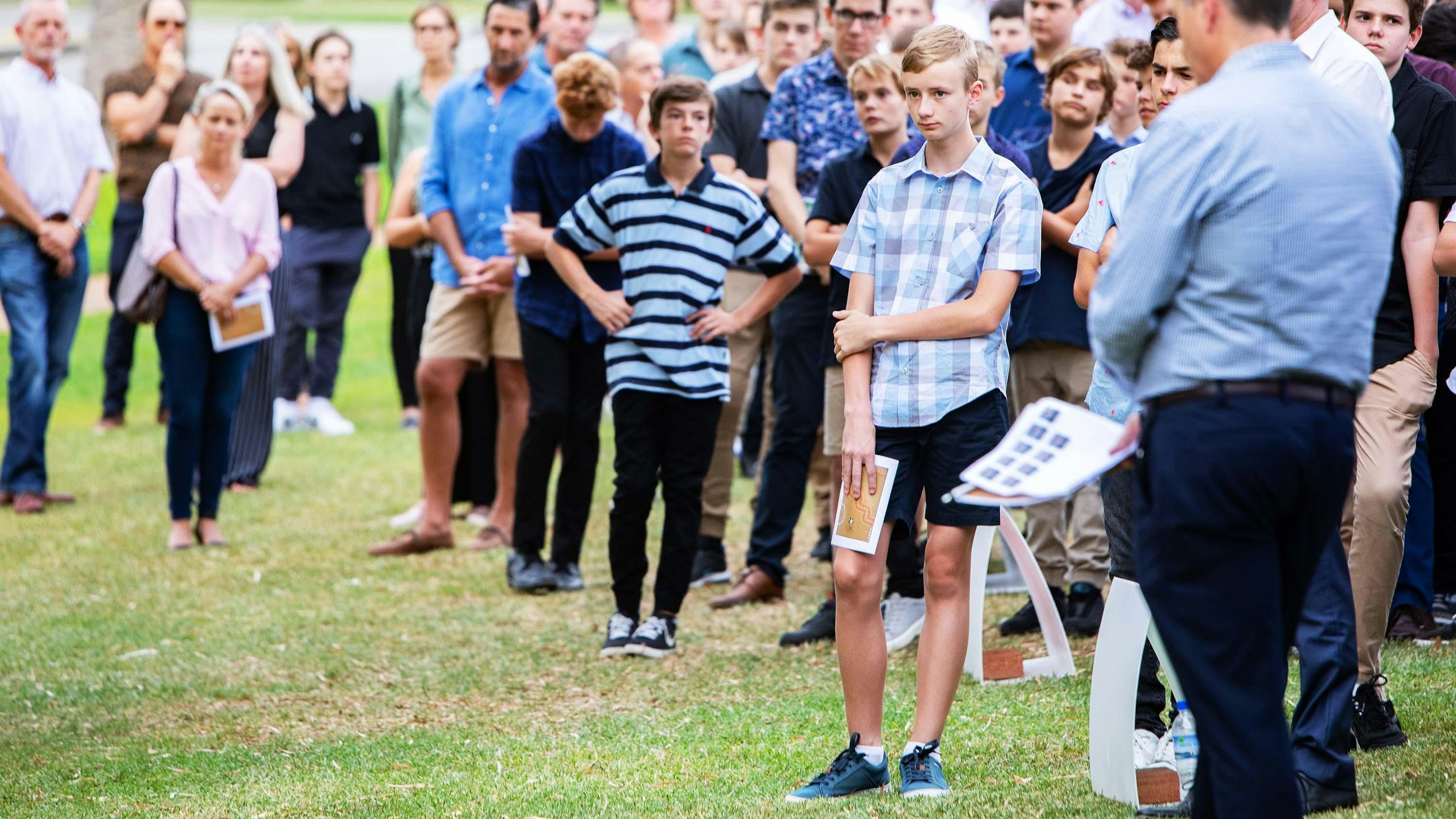
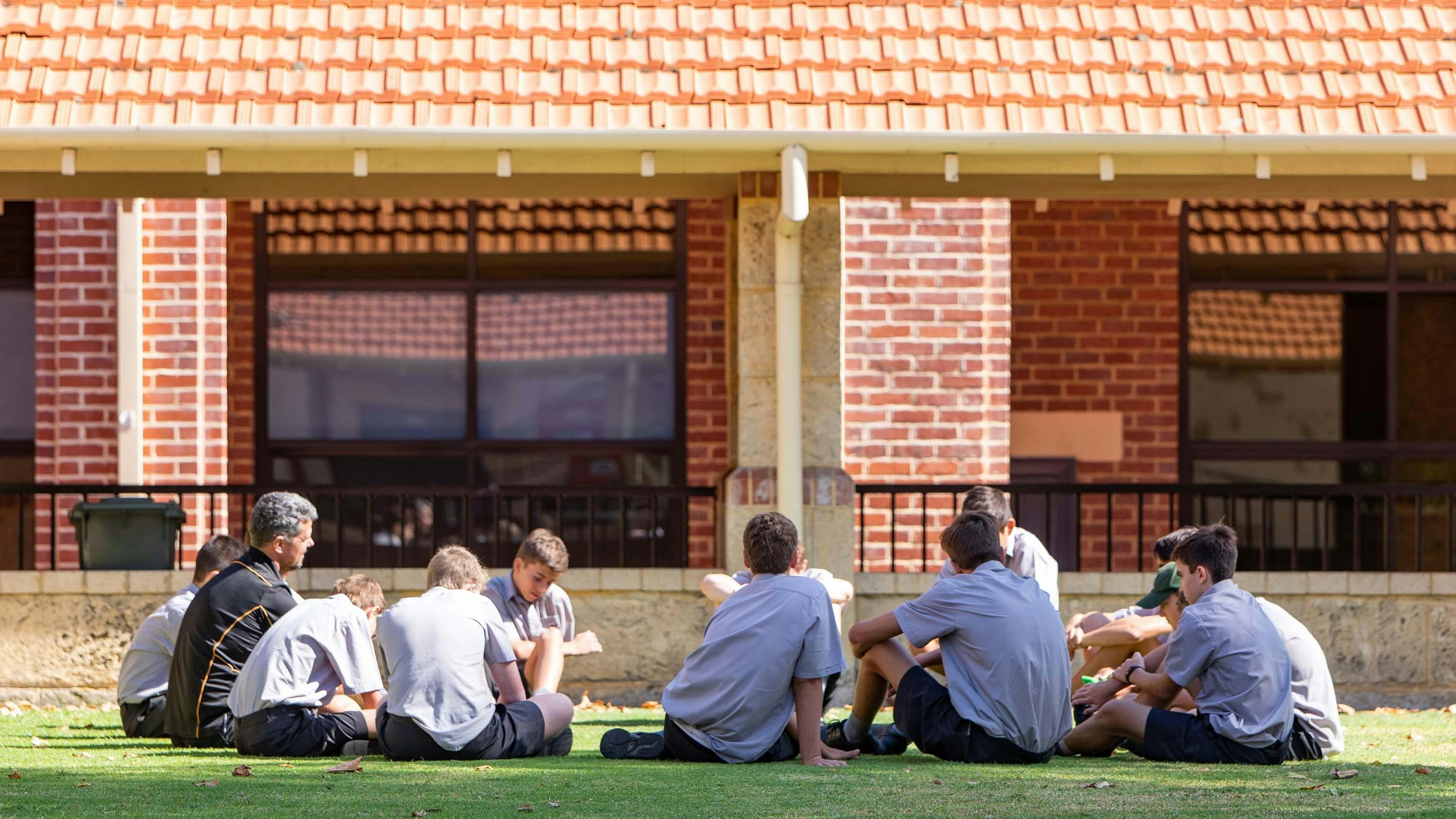
At CBC Fremantle, a single-gender focus on counter-cultural rites of passage programs that guide the young men through the minefield of male adolescence aims to accept responsibility for their development into the gentlemen of tomorrow. Under the eye of male mentors who bravely step up to share their own stories and be the authentic role models for a generation of boys desperate to be noticed and heard, creating honest and open discourse for the boys encourages them to be set free from the bonds placed on them by social stereotypes. Community plays a massive part in the boys' growth and College-run ceremonies honouring their transition into adulthood are a powerful tool on the journey. Feeling as if you are becoming a good young man is one thing but to be acknowledged by your family, friends and teachers is an affirmation that has life-long influence.
Mr Burgio said: "At CBC, we place higher expectations on our young men, and we encourage them to be gentle-hearted, loving people. There is no shame in love, and there is no blame on these developing boys. At the end of a CBC education, whether or not the graduate takes the path to be a gentleman of love, forming positive relationships and serving his community, is up to him – but he cannot say he was not shown the way."
Appropriately paced learning
Girls and boys develop at different rates, with girls maturing faster than boys. In a single-gender learning environment students acquire skills and knowledge at an appropriate pace without feeling pressure to keep up, or frustration at not moving fast enough.
More specific curriculum
Boys' and girls' interests generally vary and in a single-gender school educators can deliver a curriculum tailored to the wider interests of their students.
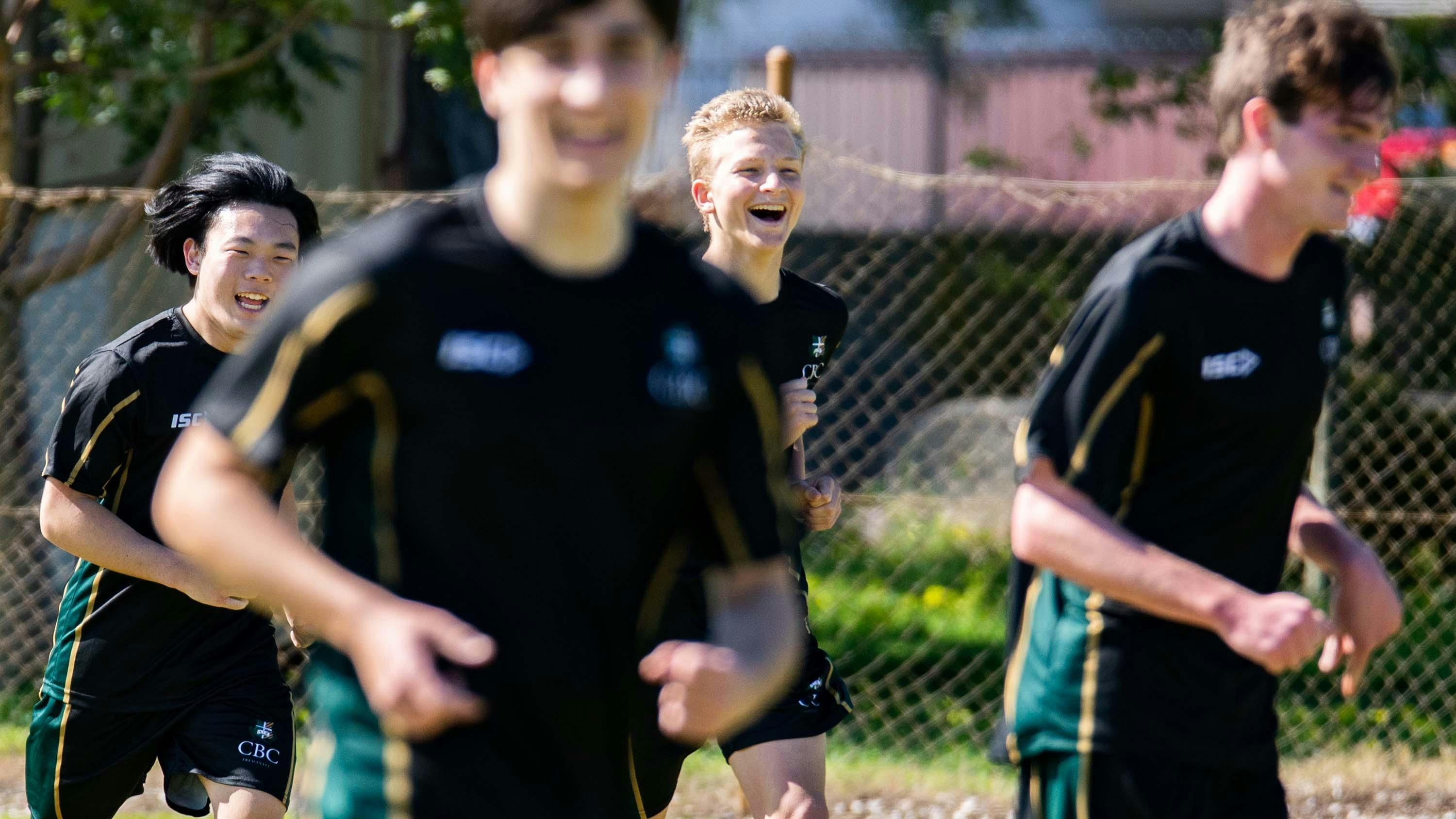
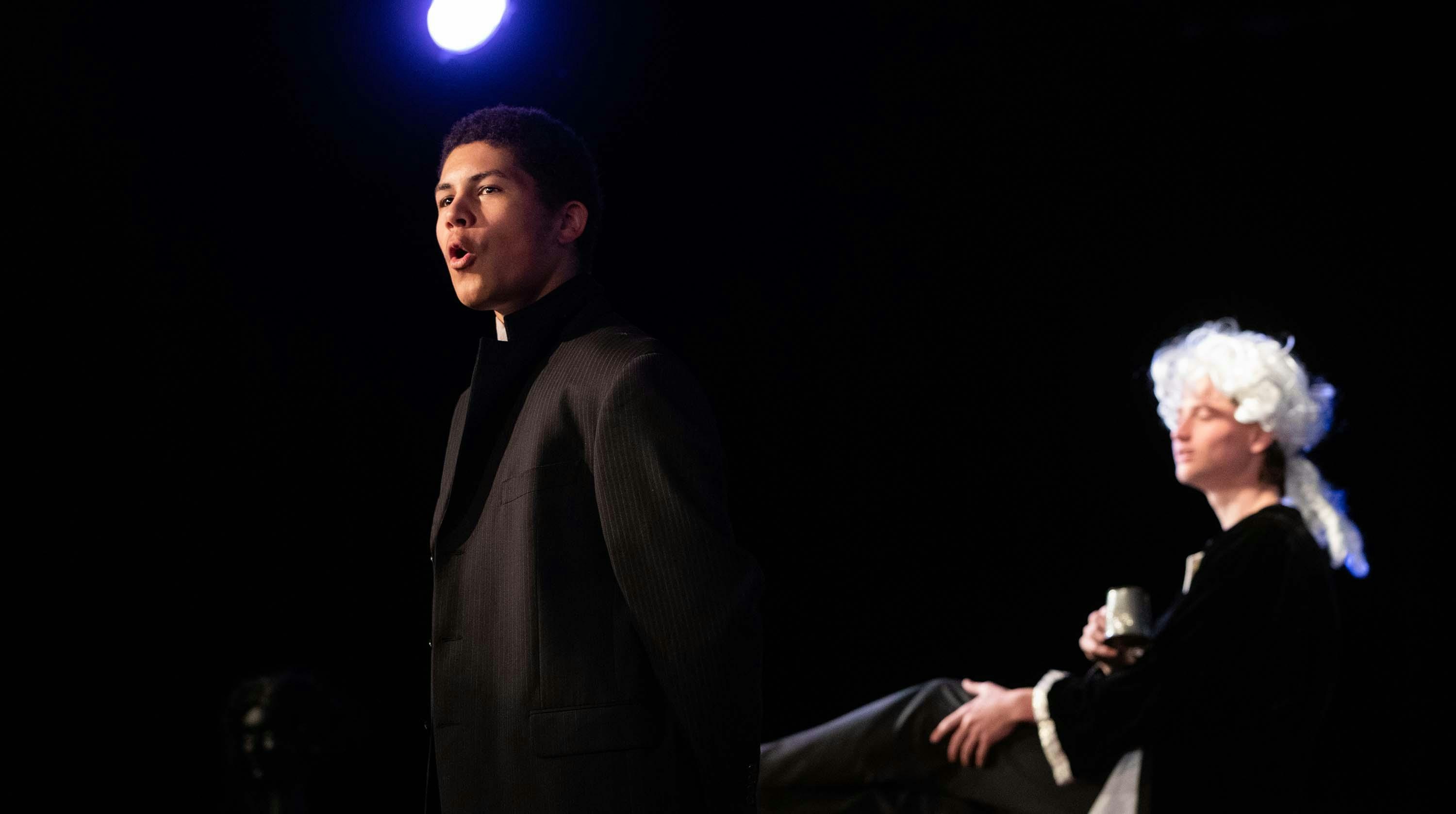
Sport provides a useful outlet for boys' energy while teaching them about leadership, commitment, tactics, teamwork and humility, by learning to deal with wins and losses with grace.
Other avenues for boys to learn in an active and practical way include performing arts and food catering, both of which are areas often viewed as 'non-masculine,' but still encourage boys to express themselves and learn excellent life skills.
Girls at single-gender schools are more inclined to engage in competitive athletics than their co-ed peers. They are also more likely to develop leadership skills and take leadership positions. A single-sex environment can empower students to take more risks like trying new or different things.
A gender-specific curriculum can also teach so much about the intrinsic hierarchy that boys and girls can unwittingly foster. Forming a pecking-order based on anything other than personal excellence contributes to narcissistic and self-serving leadership qualities that can undermine healthy relationships. If left to its own devices, ranking based solely on attributes including sport, academics and popularity can create an environment where the consistent yet moderate achievers are unacknowledged. Compassionate leadership understands that teamwork is far more effective than one hero and this knowledge contributes to a far stronger community.
However, it is dangerous to assume that single-gender education does not send messages that perpetuate, rather than eliminates, stereotyping. By the very nature of segregating boys from girls in single-gender schools, attention is drawn to their differences and does not appear to confirm gender equality. Gender equitable education that encourages boys and girls to achieve their best requires eliminating barriers that limit the options of both sexes, and in a single-gender school, it can be argued that the barriers are far easier to dismantle. In a mixed-gender school, it can be more difficult to ensure that teaching techniques and curricular perspectives are gender balanced and that classroom dynamics are not overcompensated for gender interests.
There are also some common parental concerns about single-gender education that create a degree of uncertainty when choosing a school.
School versus 'real world'
A proliferation of research into this debates means statistics can be cherry-picked to support any view. For every argument against single-gender education there is an equally valid argument in favour of it. Some argue that single-gender schools don't represent the real world. On the other hand, it can be argued that a school's role is not to mimic wider society, but rather to teach and nurture our children until they have matured into young adults and are ready physically, intellectually and emotionally to participate in the wider society.
The home is the first centre of education for a child, and how this 'world' is perceived is the major influence in the child's early development. Choosing a school with similar values to the family environment – whether it is single-gender or co-educational, public or private, faith-based or secular – provides a consistent foundation. With this support, and in partnership with the family, teaching and learning can be a strong force in developing children to become independent thinkers and to mature into the best version of themselves.
Toxic masculinity
A major concern for parents is whether graduates of single-gender schools are adequately equipped to engage in respectful, happy relationships in the future, and to contribute positively and harmoniously to our global community.
Recently in the media we have seen displays of disrespectful behaviour by boys who attend prestigious schools. In reality, it is not the schools who are to be held responsible for the aberrant behaviour of its students. Toxic behaviour of this ilk is not taught at the institutions that these young men attend, nor is it condoned. The herd mentality that resulted in these unacceptable expressions of misogyny and elitism is a collective result of a far more insidious and encompassing education that seeps into the learning of our young people from birth. The world conditions boys to accept privilege and power at the expense of the freedom of some, and likewise perpetuates the illusion that girls are usurped from their rightful place as equals.
The deeper and more pervasive issue of these news headlines is the 'boys' club' mentality which sanctions inappropriate behaviour towards women and the marginalised, raises concerns about nepotism and 'jobs for mates' and perpetuates the mythology of male entitlement.
Zero tolerance towards this kind of behaviour is paramount towards building a better and more inclusive world. While every school – co-educational or single-gender – has a different culture and values, at CBC Fremantle every student's journey is supported to encourage the development of a child psychology into adult psychology.


From their first day at the College, effective pastoral care and role modelling exposes students to positive masculinity and the honouring of women as equals. In Year 8 the developing young men work in conjunction with their peers from Iona Presentation College, building classroom relationships that foster an appreciation of diverse approaches to learning and communicating. In Year 9, within the structure of College's watershed program, The Rite Journey, the young men develop a further understanding of society's attitudes towards women by discussing contemporary issues. The single-gender environment facilitated by a male Rite Journey teacher encourages the boys to be able to speak openly and honestly and to ask sometimes difficult questions that they may not approach in a co-ed class.
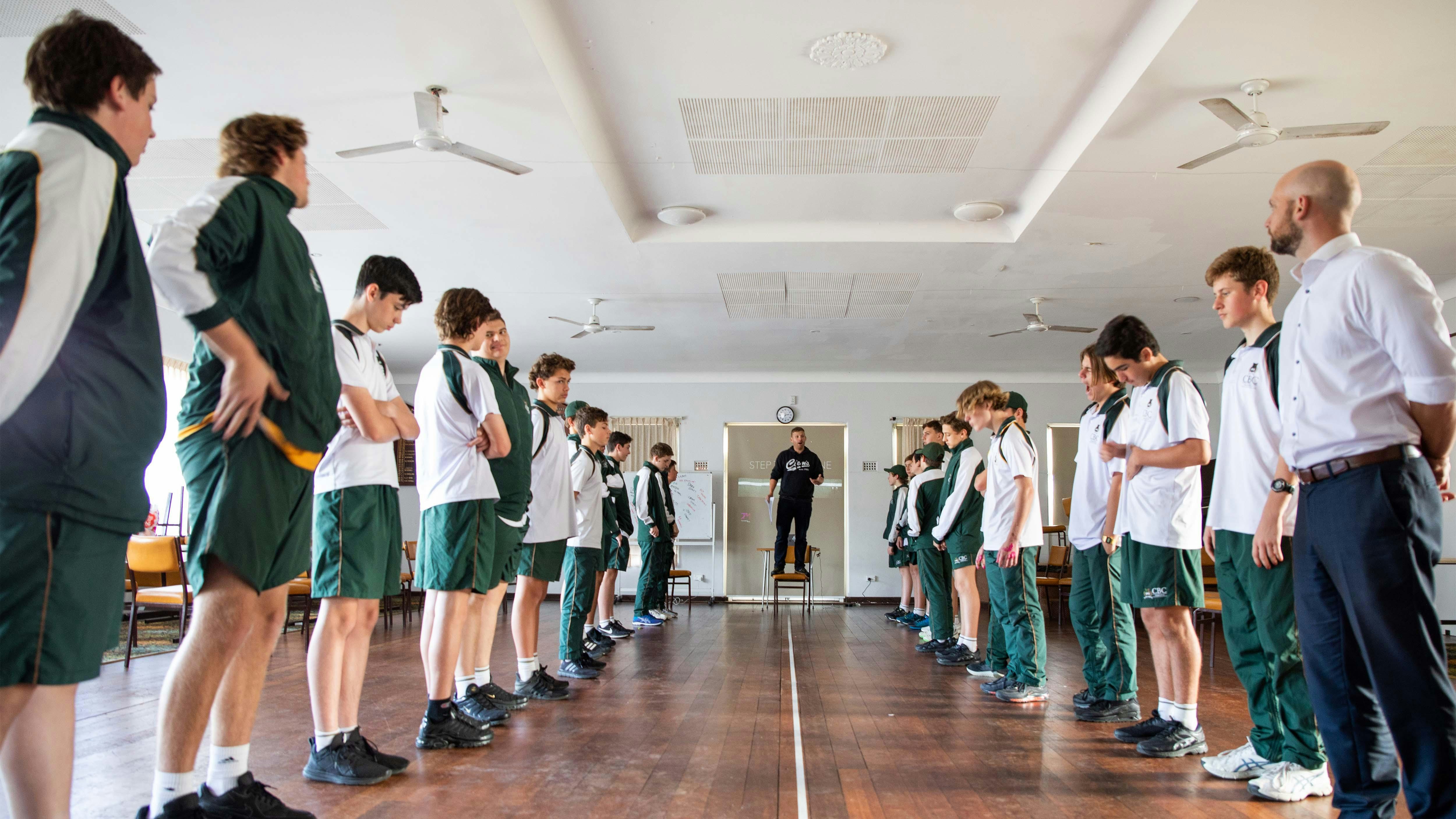
In Year 10, 'Breaking the Man Code' workshops aim to break the mould of typical masculine stereotypes – it provides boys with the validation and confidence to follow their passion, not be afraid of failure, respect others for living out their aspirations, and challenge the negative stereotypes society places on them. The program aims to develop positive male models, encourages boys to communicate about their feelings and be aware of strategies to address mental health issues. Once again, the single-gender environment encourages an authentic response from the boys.
"The CBC journey is all about transitioning from a child way of thinking, where you are centre of the universe and it is all about what others can do for you, to an adult psychology, where it is all about what you can do for others," said CBC Director of Student Leadership, Mike Pickford.
"Examining the hard issues in a room full of young men is a powerful thing – they come out from these sessions feeling they have really got each other's back on the quest to make the world a better place. It's an amazing thing to witness.
"We encourage our young men to use their strength for the common good – to be caring, compassionate and loving leaders. There are terms like 'embracing the feminine', and this may be true, but we don't see it as a gender thing. As a faith school, we encourage our boys to embrace the teachings of Jesus Christ and to form attitudes and actions based on Gospel Values. Things like patience, kindness, empathy, service, looking out for each other and love.
"Of course, these things can be, and are, taught in co-educational schools. But the focus at CBC is on the gentlemen – the gentle men – who will graduate and go out to be the best partners, fathers, employees, leaders they can be. And I believe the message is far more powerful in a single gender environment."
Social interaction
Another concern with parents is that their children will not interact with the opposite gender and will be socially handicapped in the future.


At CBC, boys are given a variety of opportunities throughout their time at the College to mix with students from other schools, including dancing lessons and a social as part of The Rite Journey, practising their Italian skills on Italian camp, or learning how to cook delicious meals with their peers from Iona Presentation College.
While these are just some of the opportunities for students to mix during academic, sporting and social activities, the fact is that single-gender schools do have limited interaction with other gender schools. However, experience shows that most boys and girls, regardless of what type of school they attend, have friends, siblings, cousins and other family members of the opposite sex. With the advent of social media, students are more connected than ever, and there is no research to suggest that people of a single-sex education have any difficulty in the workplace with people of the opposite sex.
While most parents want their child to achieve academically, most recognise that it is not the be all and end all. They generally also want their children to be socially competent and accepted, emotionally intelligent, resilient, confident, good global citizens and above all enjoy their schooling years.
According to Dr Judith Gill, adjunct associate professor at The University of South Australia specialising in schooling and gender, the focus should be on the quality of the teachers and the educational experience.
"The quality of the educational experience – centrally involving the teachers and the school leadership – is much more important in student outcomes than the 'label' (public, private, single-sex or co-ed) of the school," said Dr Gill.
Ultimately parents must consider their child's unique traits, and the school's philosophy and mission when deciding which school will be the best fit for the child.
At CBC Fremantle students are supported to become leaders and true gentlemen who, informed by Christian values with a strong sense of justice, are prepared to shape a better world. To find out more, order our prospectus.
